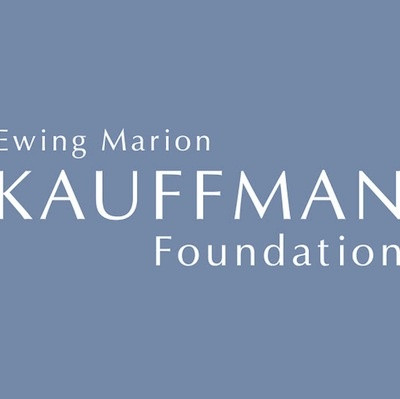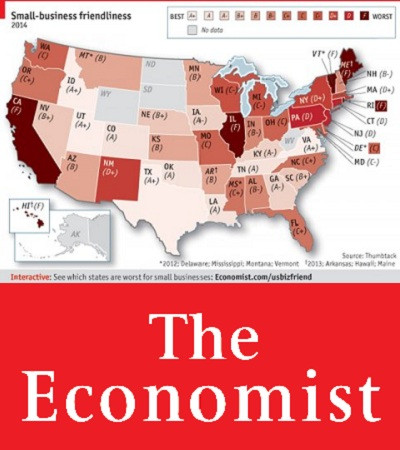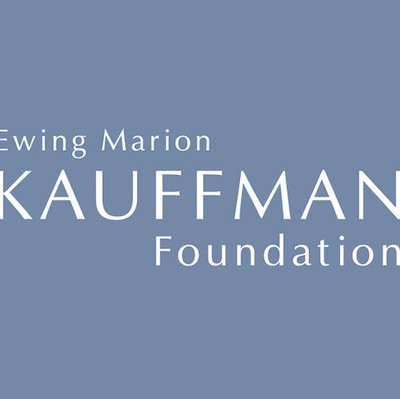Saul Kaplan: You Don’t Have to Go to a Conference to Enjoy It
Wednesday, October 07, 2015
Are you jealous of your colleagues as they jet off to attend yet another innovation conference? Do you suffer from FOMO (fear of missing out) when you see people in your network sending tweets and posting pictures from TED, SxSW, or Burning Man? How do they have the time, money, or connections to always wangle their way into every cool conference? You don’t have to be envious though. For a growing number of conferences, you can now participate without actually going. I’m not talking about passively reading a post-conference report, or perusing blog posts that summarize key points after the fact, or watching videos like a voyeur. I’m saying you can actively engage, learn, contribute and even influence the conversation. This is becoming more and more possible as social media platforms increase access to content, speakers, and participants in real time. You don’t need to be in Austin or Vancouver or Black Rock Desert. You can attend from wherever you are.
As the host of a global innovation conference (BIF Collaborative Innovation Summit), I’ve been watching remote conference participation play out over the last 10 years and I’m convinced that it’s a good thing. Lets face it; professional conference goers are a pretty homogeneous bunch. But fortunately, social media platforms are enabling anyone with a web connection to join, breaking down the socio-economic barriers that limit the diversity and ultimate value of conference interactions. Attendees are sharing their experience, not to promote themselves or the event, but to increase engagement around new ideas and the likelihood of real action as a result.
Our conference, like most others, has become increasingly social throughout its 11-year history. When Twitter launched in 2006, we were able to start following conferences by following a hashtag, such as #BIF2015, which allowed both attendees and remote participants to easily find each other and to engage online. Conferences were slow to embrace remote access at first but many have come around with an increasing number of them, including ours, now providing live streaming video so remote participants can watch and listen to speakers in real time.
GET THE LATEST BREAKING NEWS HERE -- SIGN UP FOR GOLOCAL FREE DAILY EBLASTI spoke with Sandy Maxey (@sandymaxey) who participated in #BIF2015 from home by watching our live stream video and interacting with speakers and attendees directly using our hashtag. No one knew that she wasn’t at the actual conference. In fact, someone even tweeted to Sandy about meeting at the lunch break to which she replied, “But I’m not there!” Sandy is a self-professed introvert and when she does go to conferences in person, she always sits in the back of the room and seeks out corners during breaks to avoid the mad crush. Sandy said she prefers participating remotely because she can go at her own pace and it’s easier to access more contextual information from her computer at her desk than from a phone or tablet in a cramped auditorium seat. She then uses that information to connect outside ideas to what’s happening at the conference. Sandy also told me that after listening all day from home she can go for a run or dance in her living room to help process what she has learned.
The people who fully participate in our conference without showing up in person tend to follow these ten principles:
1.) Never think you don’t belong in the conference conversation because you aren’t there. Oftentimes people don’t even know the difference. And, who knows, you may be connecting with someone who also isn’t physically present.
2.) Don’t wait for the conference to start before you engage. A lot of the conversation begins weeks before the first presentation. And similarly, don’t stop engaging when the conference ends. The long tail of connection can often be longer than you think.
3.) Use the conference hashtag across social media platforms to dive fully into the active conversation and connect with others.
4.) Insert your point of view and experience into the conversation. Don’t just retweet or repost what speakers or attendees are saying.
5.) Sign up for live streaming whenever available and block out the time on your calendar to participate as if you were attending.
6.) Ask speakers questions via social media as if you’re there. You’ll be surprised by how many will answer because they aren’t only interested in connecting with people who are in the room.
7.) Don’t listen only to celebrity speakers. They’re not always the best, and you’ve likely heard their story before. Instead, read through presenters’ bios to find the most unusual background and topic. For a small investment of time you might actually learn something new.
8.) Don’t just listen to the speakers. Follow and contribute to the narrative thread emerging from the conference. The gold is in the grey areas between talks.
9.) Engage others in your network who might not be aware of the conference but belong in the conversation. Just cc them on tweets and invite them to join in.
10.) Suggest actions and possible collaboration opportunities directly into the conference conversation via social platforms. It’s not unusual for a remote participant to suggest an exciting new possibility for an idea mentioned from the stage.
Every year when I open the BIF summit, I remind attendees that this isn’t really about them or the speakers; it’s about catalyzing something bigger than any one of us. It’s about engaging and collaborating, not just with those lucky and rich enough to be in the room, but more importantly with those participating from outside. Conferences are more likely to have their intended impact when they are inclusive. If you’re an organizer, increase your surface area by engaging outside participants. If you’re an attendee, enrich your experience by sharing it with those of us not in the room. If you’re at home or in the office, take advantage of these real-time connections to get better faster. After all, it’s not about how many conference badges or business cards you collect, it’s about what you learn and do that matters.
This post originally appeared on the Harvard Business Review site here.
Saul Kaplan is the Founder and Chief Catalyst of the Business Innovation Factory (BIF). Saul shares innovation musings on his blog at It’s Saul Connected and on Twitter at @skap5.
Related Slideshow: RI Business Rankings in US
See how Rhode Island stacked up.
Related Articles
- Saul Kaplan: Hourglass Theory of Life
- Saul Kaplan: Preach to the Choir
- Saul Kaplan: Sometimes Disruption Has To Hit You Right In The Mouth
- Saul Kaplan: Our Obsession With Scalability Must End
- Saul Kaplan: Innovation Lessons From Taylor Swift
- Saul Kaplan: Innovation Lessons from the Battlefield to the Boardroom
- Saul Kaplan: Here’s Why It’s Not All About Your Personal Success
- Saul Kaplan: This Is Why Religion Is Just a Technology
- Saul Kaplan: On the Internet, What You Don’t Know Can Hurt You
- Saul Kaplan: The Splendid Exile of the Genius Richard Saul Wurman
- Saul Kaplan: 3 Simple Words to Revolutionize the World
- Saul Kaplan: Thankful Innovation Junkie
- Saul Kaplan: Start More Stuff!
- Saul Kaplan: Emerging Tech Is Society’s Shadow Future
- Saul Kaplan: Where Have All The Corporate Stories Gone?
- Saul Kaplan: Welcome To #BIF2015!
- Saul Kaplan: Reinvention As A Life Skill
- Saul Kaplan: The Future of Work
- Saul Kaplan: Stop Treating Business Model Innovation As Change Management
- Saul Kaplan: Don’t Get Netflixed
- Saul Kaplan: Has Personalized Medicine Finally Arrived?
- Saul Kaplan: Trust is Overrated
- Saul Kaplan: Raise The Minimum Wage: It’s Innovation Policy
- Saul Kaplan: Coming To You Live From Everyone
- Saul Kaplan: The Human Side of Innovation







_400_400_90_400_400_90.jpg)






_400_400_90.jpg)







_400_400_90_80_80_90_c1.jpg)






_80_80_90_c1.jpg)




